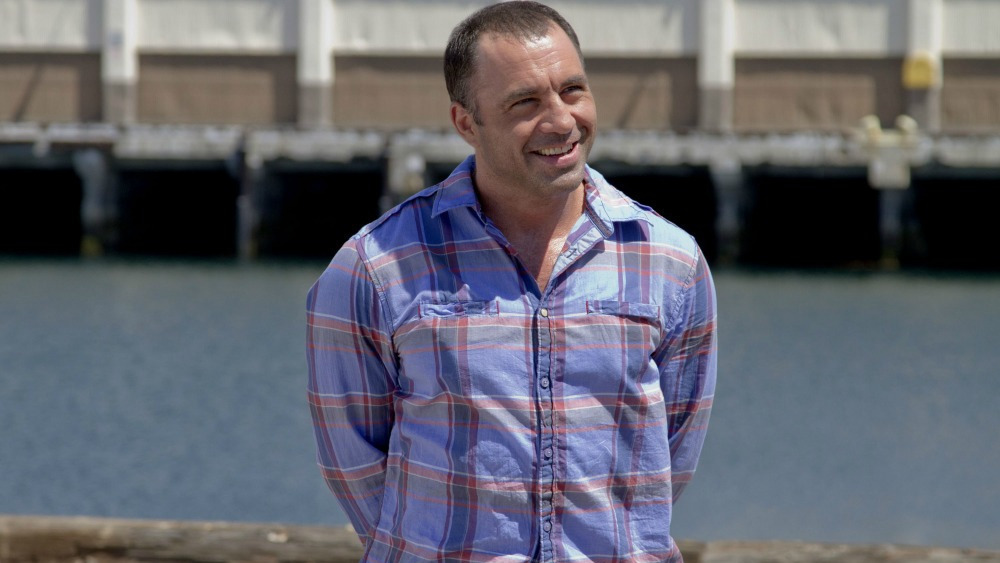The One Thing Fear Factor Contestants Were Banned From Doing
On most game shows, you just have to answer trivia questions or maybe go through a wacky obstacle course. Then you have a show like Fear Factor, which wasn't above having people eat sheep eyeballs or sit in a coffin filled with spiders. Originally hosted by Joe Rogan, Fear Factor lived up to its name and then some by making contestants face their greatest fears all in service of making a ton of money. Things took a turn for the disgusting when the show was canceled in the wake of one of the challenges getting leaked to the press that involved bodily fluids from a donkey to put it nicely. That Fear Factor episode was banned, but ultimately, you can't keep a good show down, and it's been revived a couple times over the years, most recently over on MTV with Ludacris taking over hosting duties.
With a show like Fear Factor, it'd be easy to assume it was a no holds barred free-for-all, but just like with appearing on any reality program, contestants have to follow strict rules. From what we've been able to glean, there are some standard clauses, such as a non-disclosure agreement to ensure people don't talk about an episode before it airs as well as waivers of liability in the event someone were to get hurt while filming. Then there are the rules that may make you scratch your head at first.
Fear Factor banned contestants from running for public office for one year
A good rule of thumb — if you plan on becoming a senator, then you probably don't want video footage out there of you putting rats in your mouth and transferring them from one bin to the next. Fear Factor made sure there weren't any aspiring politicians (at least in the short-term) among its cast members, as Screen Rant reports there was a clause in the contract stating that contestants were not allowed to run for public office for a full year after their episode aired. Technically, they could still run eventually, but it seems as though the network didn't want to run the risk of someone potentially starting a political campaign right when the episode aired.
The most likely explanation for this clause has to do with the equal time rule in broadcasting, which states that a network must treat candidates running for the same political office the same (via ThoughtCo). There are exceptions, but basically, it means that if a broadcaster has one candidate on a program, then it needs to at least offer an equal amount of time to his or her opponent. Chances are the network just wanted to avoid any liability and played it safe by making it against the rules to start a political career shortly after drinking 100-year-old eggnog.
After some digging online, it appears as though no one ran afoul of these rules, which is probably a good thing. After all, the best slogan for a former Fear Factor contestant on the political trail — "The only thing we have to fear is fear itself" — was already taken by President Franklin D. Roosevelt.

